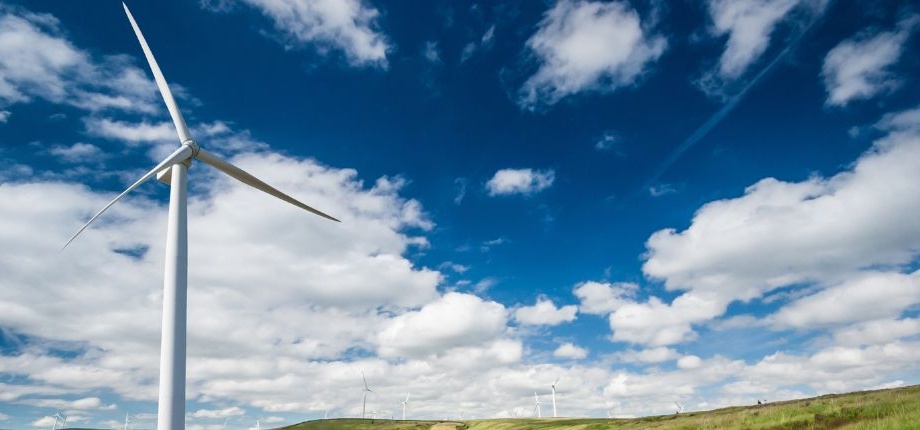Executive Master in Management of Energy Projects

Context and Objectives
According to the International Energy Agency, investments in the energy sector amounted to US$ 2.7 trillion in 2022. Energy is a domain where investments are often very large, and technically very complex. The current transformation of the energy sector is making projects even more complex.The transition from fossil to low carbon energies is accelerating, which will help to reduce CO2 emissions. The technical challenges of the new energy sources are still significant during the generation stage, but also in managing intermittency and storage. In addition to renewables, nuclear energy also bring a large contribution to the reduction of CO2 emissions since it can supply massive quantities of electricity in a baseload mode.
Business models for renewables energies are changing from subsidized tariffs to regular market competition. Digitalization helps to better manage their impact on the grids and also facilitates the development of innovative business models such as domestic PV panels combined with electric vehicles and storage, and self consumption. Such new « disruptive » business models are welcomed by consumers who want to monitor and control their energy consumption and even generation, and no longer limit their role to just the payment of their bills.The social dimension of energy is another change that the sector is facing. Consumers want to be actors. Building energy projects can no longer be done without the consent of their numerous stakeholders.
École nationale des ponts et chaussées, its research labs and affiliates combine a unique expertise in large infrastructure projects, urban systems, mobility, sustainable development, relations with territories and stakeholders, optimization of complex systems, etc.
The course is registered with the Répertoire National des Certifications professionnelles (RNCP), title "Directeur de projet en énergie" level 7 (RNCP38009). This RNCP title entitles you to:
- level 7 certification recognized by the French Ministry of Labor
- use of your CPF to finance your training
- access to a professionalization contract financed by an OPCO via your employer
Registrations are open for 2026-2027!
Entry Requirements
Academic requirements
Master Degree (Bac+5) / 5 years Higher Education, Equivalent Diploma (Comparable to Bac+5 / 5 years Higher Education) or Bachelor Degree (Equivalent to Bac+4 / 4 years Higher Education) with three years of work experience. Applications from Engineers as well as Managers with a business, finance, humanities & social sciences background will be considered.
Languages
The required level of English is equivalent to a B2 level (common European framework of reference for languages)

Admission
Registrations are open for 2026-2027!
If you are interested in joining the program for the next academic year, please prepare your file based on the information provided in these following links:
- Download the instructions for candidates and admission requirements
- Please fill the online form to apply.

Don't hesitate to ask for more information about the Mastère Spécialisé® - Executive Master Infrastructure project Finance by clicking the "Contact" tab.
The admission sessions are:
Session 1
Deadline for submitting your application: 25th January 2026
Interviews 2025: 29th January 2026
Admission jury: 31st January 2026
Session 2
Deadline for submitting your application: 22nd February 2026
Interviews 2026: 26th February 2026
Admission jury: 28th February 2026
Session 3
Deadline for application submission: 24th March 2026
Interviews: 26th March 2026
Admission jury: 30th March 2026
Tuition Fee
The tuition fee for the 2026-2027 session of Advanced Master Management of energy projects is:
- €14,500 (net of VAT) if financed by Applicant
- €17,000 (net of VAT) if financed by a Non-Partner company*
These prices are subject to change and exempt from VAT
* Enquire for the price for a Partner company
Funding
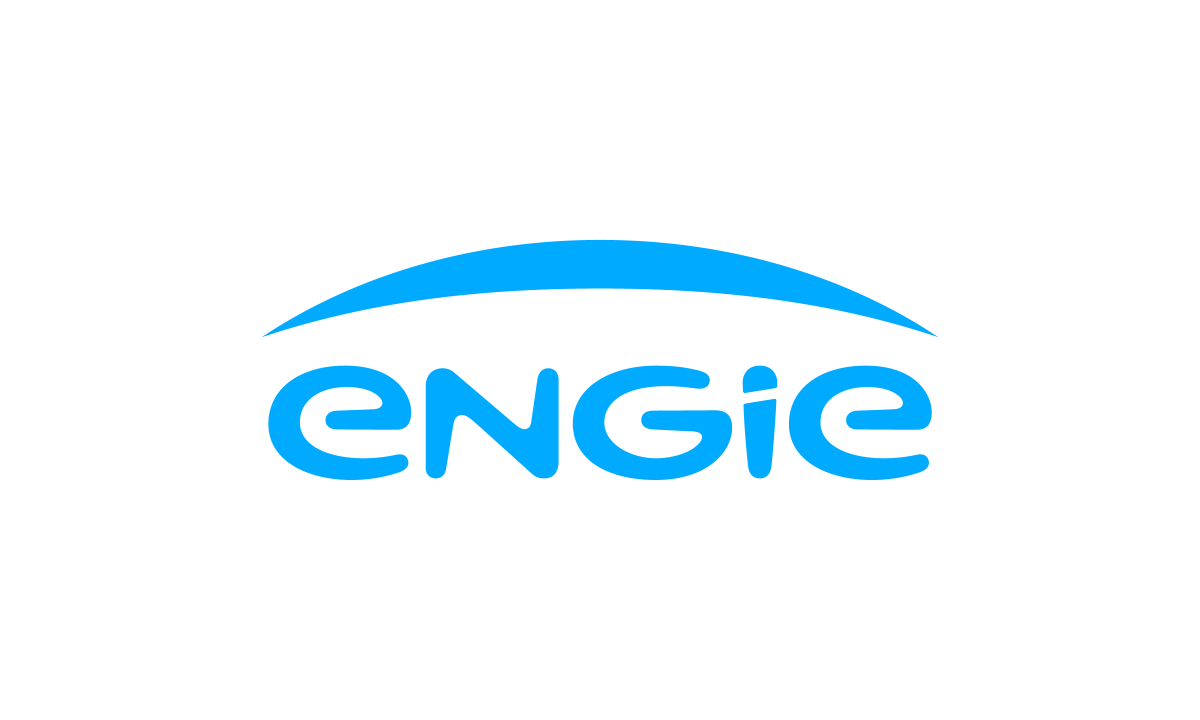
Our partnership with Engie is aimed to inspire all talented candidates and encourage female candidates to pursue studies and a career in Energy. Ecole nationale des ponts et chaussées and Engie both aim to support efforts towards achieving gender equality in technical careers in fields where there is a gender imbalance. If an application is selected for admission, candidates may enquire to apply for a scholarship, that might if awarded cover partial or full tuition fees.
Download the brochure on Funding and Partnerships
The Ecole nationale des ponts et chaussées is listed as a holder of Qualiopi certification for the four activities concerned (training, apprenticeship, VAE and skills assessment).
Housing
Find out more about student housing and our partnership with Studapart.
Program Assets
The strengths of the course are:
- Diverse student population reflecting multiple cultures and disciplines.
- This corresponds to the current demand of future employers seeking teams that are multicultural and multidisciplinary.
- Diversity of courses taught by renowned academicians and seasoned professionals.
- This model allows students to acquire critical thinking and risk analysis abilities.
- The courses will be taught entirely in English
Skills
Students will develop the abilities required to integrate the different areas of the management and engineering of energy projects, from their conceptual and business development phase, marketing, financing, public acceptance, construction, operations, etc. They will also bring valuable concrete expertise to public authorities, at a regional, national or international level, to energy regulatory agencies, etc.
Career prospects
The skills acquired will enable participants to work in Europe and abroad in:
- Energy generation, distribution, trading, etc. firms
- Energy equipment & services suppliers
- Construction industry
- Finance institutions
- Banks
- Investment Funds for Infrastructure
- Development Banks or equivalent
- Audit firms
- Consulting firms
- Communication firms
- Administrations
- Public sector institutions
Label
The program is accredited by CGE (Conférence des Grandes Écoles)

The Management of Energy Projects program is 12 months in duration and includes 320 hours of lectures, divided into 4 sections with 21 modules, a 70 hour case study which runs in parallel, a professional assignment of a minimum of 5 months, and an applied research thesis.
Economic & Societal Aspects
- Evolutions of the energy demand
- Geopolitics of energy
- Energy markets and regulations
- Electricity systems in the energy transition
- Social acceptance of energy projects
- Dynamic Business Modeling and New Energy Business Models & Workshop
Technological Innovation & Challenges
- Energy production, transport and storage
- Life cycle assessment of energy systems
Value, financing & Risk Management
- Introduction to Finance
- Investment, valuation and control
- Project finance
- Structured finance + 3h introduction for MEP students
- International financial risk management +3h introduction
Project Management & Organizational Issues
- Project management techniques
- Risk management
- Organizational & Managerial Practices
- Leadership skills
- Project governance
Case Study
Duration and planning
(subject to change)
Total: 403,5 hours of classes and case study with the contribution of industry experts and lecturers.
From September 2025 to September 2026.
Part Time:
Courses are scheduled Wednesday afternoon, all day Thursday and Friday, and on Saturday mornings from the 2nd week of September until the last week of March.
There will be a break between Christmas and New Year.
The split-week schedule format of the program allows participants to work at an internship or professional activity or to take advantage of work opportunities during the academic semester.
1st semester: Mid September to mid December: 14 weeks, 3 days/ week
2nd semester: Mid January to end of March: 13 weeks, 3 days/week
The case study will run in parallel with the 2nd semester classes.
This will be followed by a professional thesis in a professional environment until the end of September. Students spend a minimum of 5 months in a professional environment to apply the concepts learned and produce a report demonstrating a clear link between concepts and context. Presentation of projects in September. The professional thesis reports will be presented in front of jury. Students will write an applied research paper utilizing the theoretical background they have received and developing it with an issue relevant to the energy projects world.
2025
Site Visits
- IDEX La Défense site with the regional director February 2025

2024
Conferences
- "Exchanges of views on project management" with Mehdi El Guarni, Assystem and the managing director of a large industrialist

- "The challenges NEOEN is facing" by Xavier Barbaro, Neoen
- "Gas infrastuctures, hydrogen, industry decarbonation" by Cécile Prévieu Engie & Ludovic Ferrand Engie CRIGEN Lab
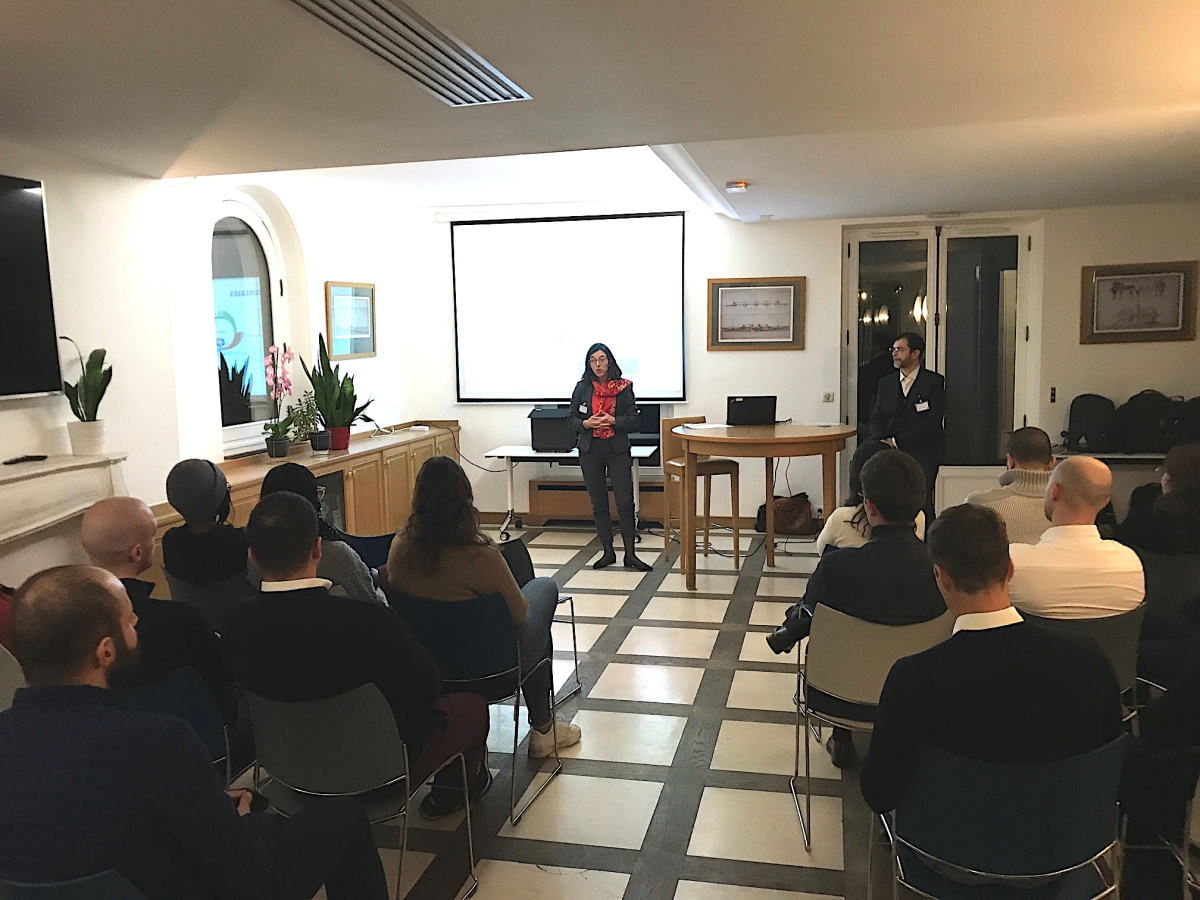
Site Visits
- Biomethane production plant
- Akuo wind farm
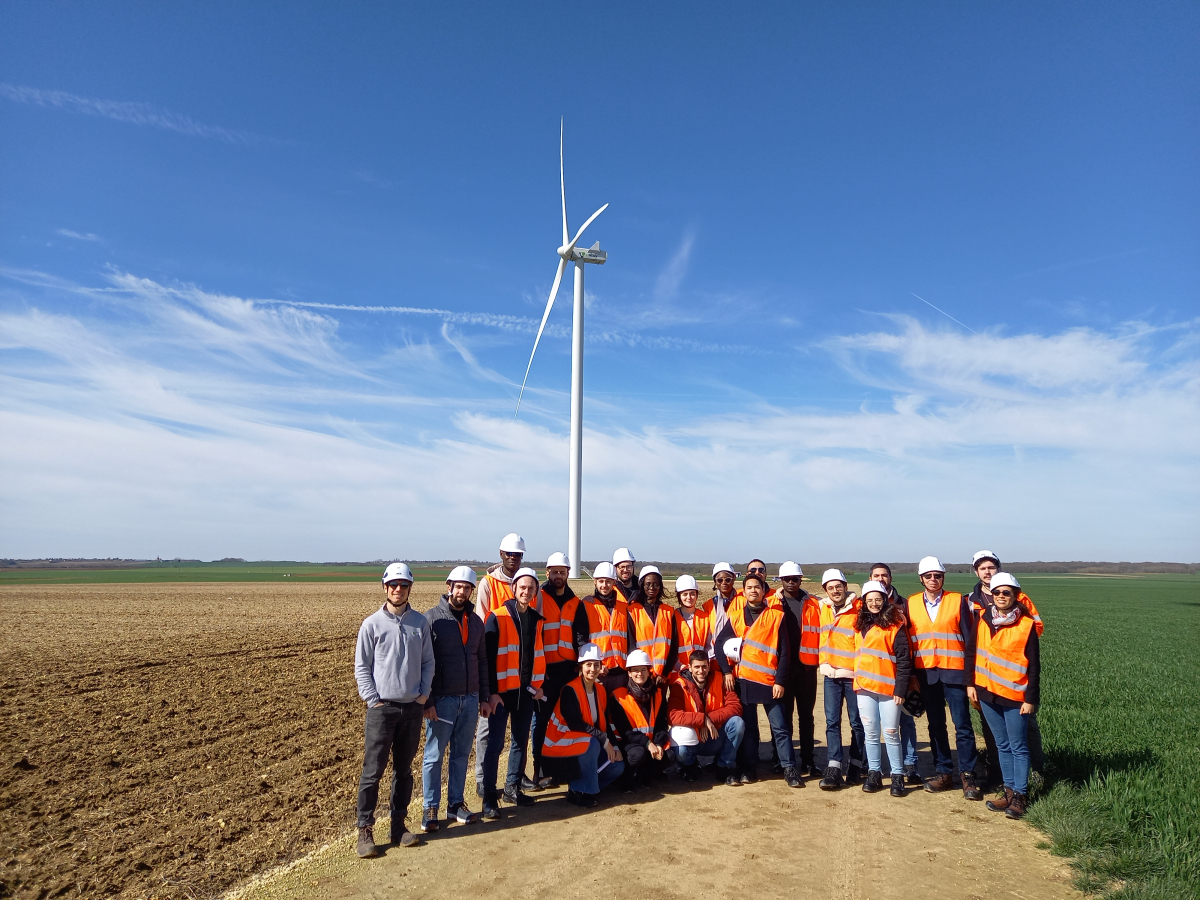
- Siemens Gamesa Offshore Wind turbines & blades
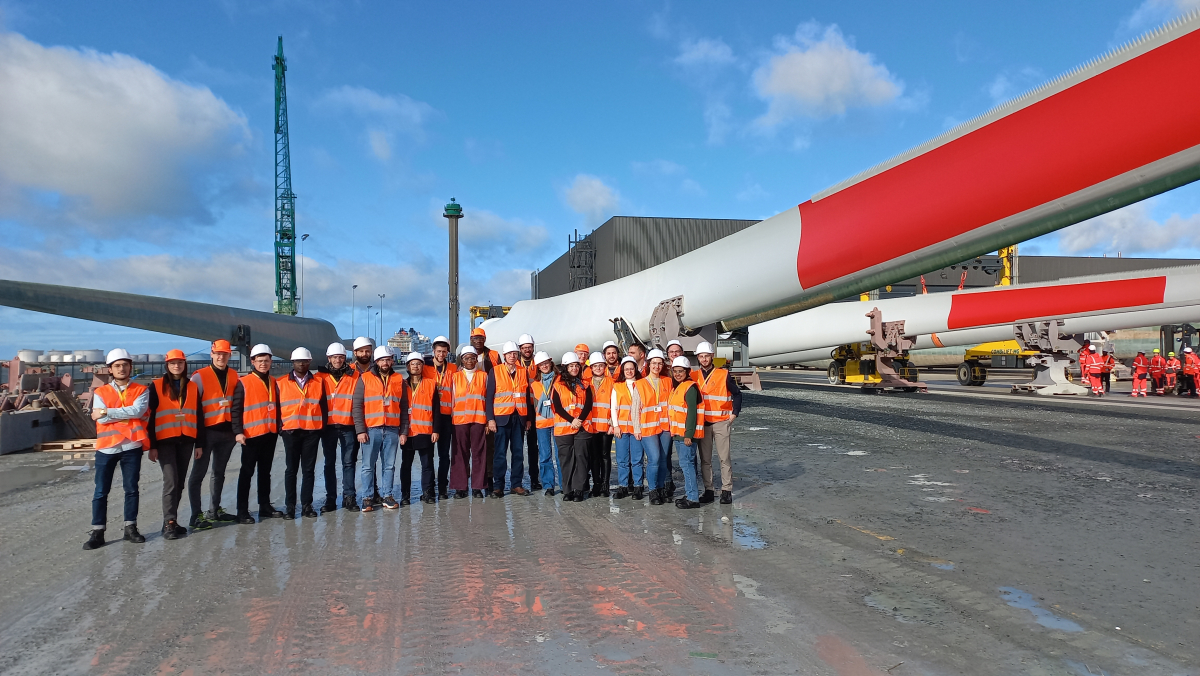
- IDEX Heat & Cold urban network
- EDF Nuclear Power Plant
Other events
- Climate Fresk
- EnRoads workshop
- CV and social networks workshops
- Get together with the Executive Master Alumni and Professors
2023 and previous years
Conferences
- "The EPR2 nuclear program" by Damien Bilbault, EDF (2023)
- "The development of Biomethane in France" by Camille Poiroux, GRDF (2023)
- "Electric Mobility : a Solution for the Future ?" by Nina Rachet & al, Yele Consulting (2023)
- "Electricity storage business in France" by Gabriel Tallineau, SMART ENERGIES (2023)
- "Challenges of Fossil-Free Projects in the Industry" by Ludovic Ferrand, Engie Crigen (2023)
- "Greening La Défense heating network" by Benjamin Frémaux, IDEX (2022)
- "The ACC batteries Giga Factory" by Yann Vincent, CEO ACC (2022)
- "Electricity storage: status and outlook on the French power system" by Thibault Janvier,Yele Consulting (2022)
- "The development of Power Purchase Agreements in the solar industry" by Anaïs Viret-Yu, OX2 (2022)
- "Climate change for industry, how to reduce the carbon footprint ?" by Benoît Dumas,Imerys (2022)
- "The grid connection of the FécampOffshore wind farm" by Alexandre Irle, RTE, Project Director (2021)
- "What makes a good project manager" table ronde avec Thierry Rolland EDF, Jacques Blein Engie, Aline des Cloizeaux Naval Group (2021)
- "The development of Biomethane in France" by Camille Poiroux, GRDF (2021)
- "Hydro energy and storage" by Maryse François, Consultant (2021)
- "Renewable energies : a key role in Africa" by Henri Boyé (Ifradd) & "A focus on solarprojects" Alexis Rehbinder (Générale du Solaire) (2020)
- "The European Union Clean Energy Package" by Xavier MOREAU, CEO AlterGrids (2020)
- "The role of gas in the energy transition" by Dominique Mockly, CEO of Terega (2020)
- "Hydrogen in the energy transition" by Thierry Gervais, consultant (2020)
Site Visits and other events
- Climate Fresks
- EDF Nuclear Power Plant (2023)
- EnRoads workshop
- CV and social networks workshops
- Get together with the Executive Master Alumni and Professors
- Biomethane production plant (2023)
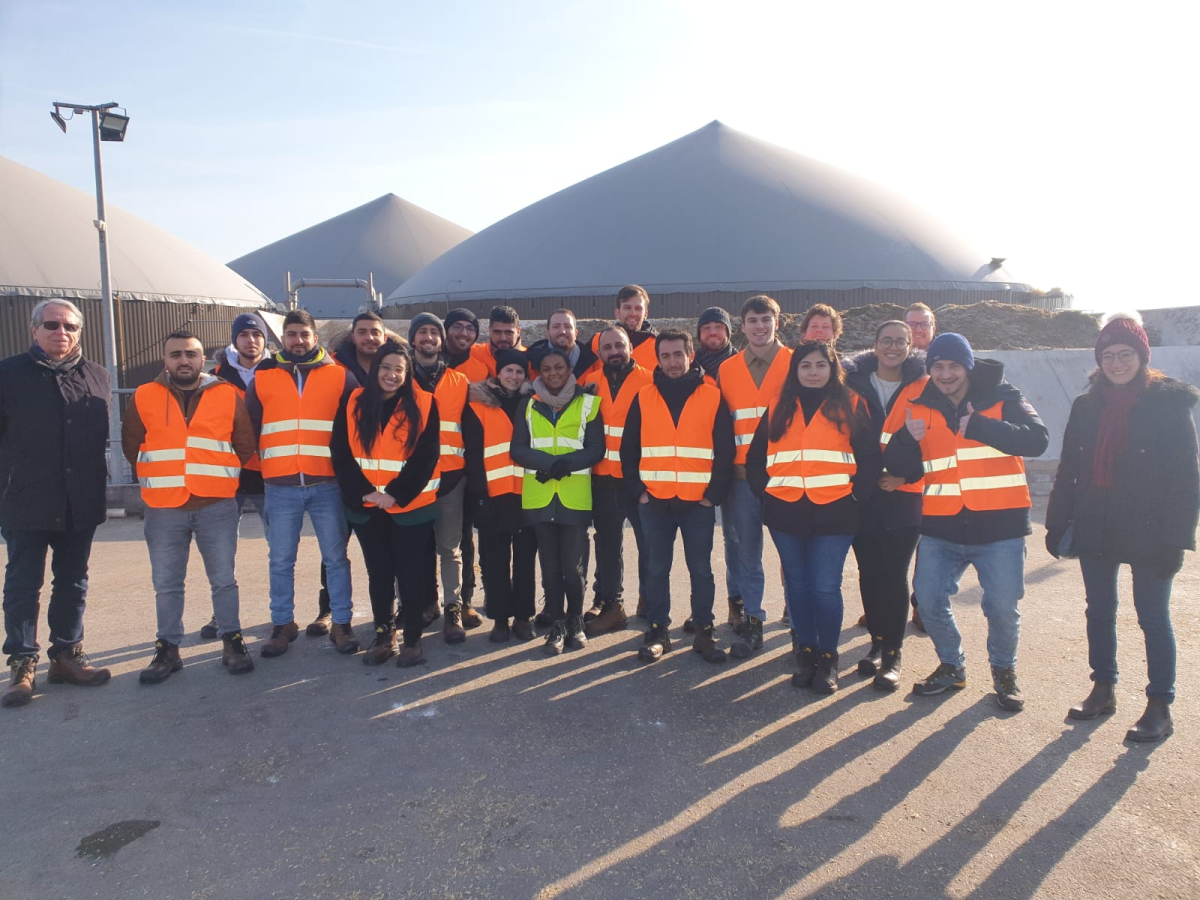
We are thankful for our partner

Team MS MEP
Louis-François DURRET
Director of the Executive Master in Management of Energy Projects
Audrey Gabourg
Inspector of Studies
Ambassadors MS MEP
Younes HBID
Ambassador of the Management of Energy Projects Mastère Spécialisé® - Executive Master
Contact or Linkedin
Salifou Keita NTIAJEMGNIGNI MAH
Ambassador of the Management of Energy Projects Mastère Spécialisé® - Executive Master
Contact or Linkedin
Please contact the team using the form below

